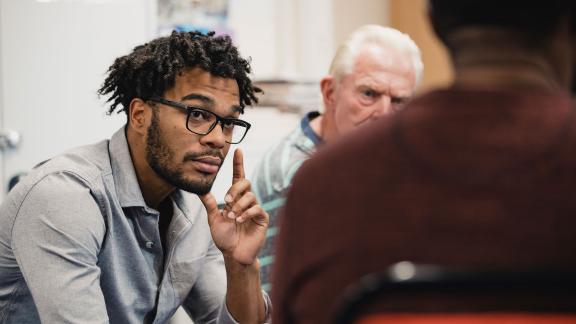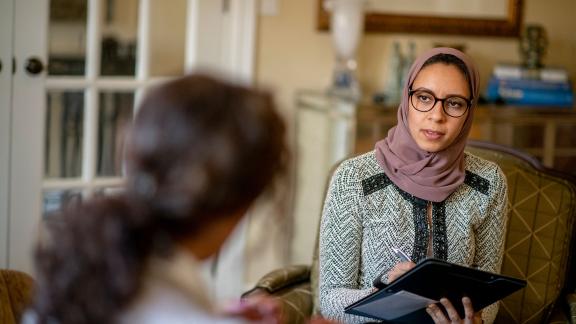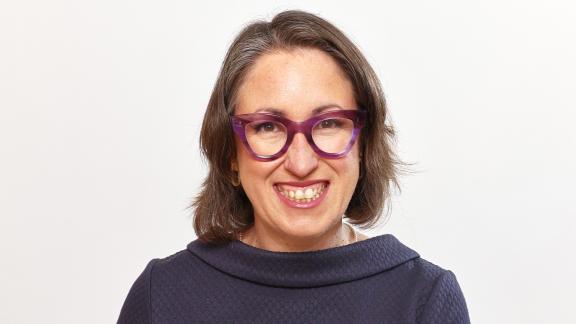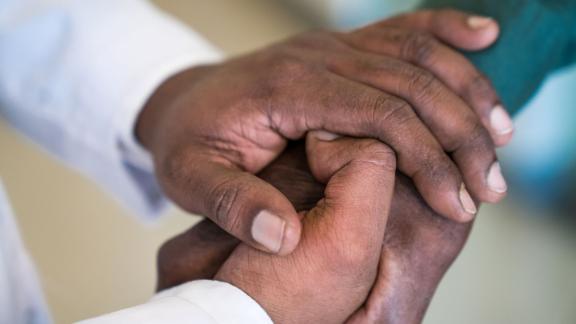NHS Reset: Dr Tosin Bowen-Wright and Paul Jenkins in conversation
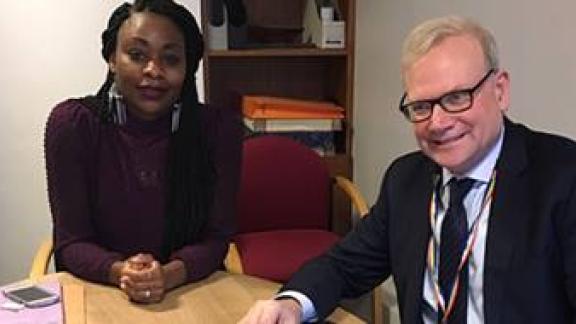
The emergence of the Black Lives Matter movement has once again highlighted the need to promote a culture of diversity and genuine inclusivity within NHS organisations to effectively respond to the needs of the populations they serve and provide equitable outcomes for all communities.
There is a definite role for white leaders to play in dismantling the barriers faced by black and minority ethnic staff. This begins by listening to colleagues’ lived experience.
Here, Paul Jenkins, chief executive of the Tavistock and Portman NHS Foundation Trust, sits down with Dr Tosin Bowen-Wright, a clinical psychologist and manager within the trust’s Camden child and adolescent mental health service, to discuss her experiences as a black woman working in the NHS.
Paul Jenkins: I’m very keen to explore how we can learn as an organisation from your experiences, to make sure we are giving genuine equality of opportunity. To set the scene – could you describe your career to date? What were the strongest influences for you?
Dr Tosin Bowen-Wright: I am a clinical psychologist and currently manage the Clinical Intake Team which is the front-door service for Camden CAMHS. I have had a desire to work with children as a child psychologist since I was a child myself, and following qualification in 2007, have worked in CAMHS settings in London. I have worked here at the Tavistock and Portman Trust for ten years.
The strongest influences have been my own experiences, and support and guidance from my mum who really supported me to realise my ambitions. My desire for wanting to be a child psychologist came from my own need for help when I was a child. We moved as a family from Nigeria to the UK when I was eight years old. The experience of moving from Africa to the UK was quite difficult; I remember really struggling to fit in and feeling a huge sense of loss for all that I had known, and for the way that I had been naturally accepted as a person in Nigeria. I found the UK quite alien and hostile initially, particularly at school. I also missed having family around me in the way that I had been used to.
Paul: What were the steps you took to realise your ambition, and what have been the breaks or frustrations?
Tosin: I’ve been to some extent quite fortunate in my career, particularly up to the point of becoming qualified. I definitely had the ambition to become a psychologist, but I don’t know that I quite had the drive before getting on to the doctorate. However, my mum did and was the one who found the adverts for the two assistant psychologist jobs that I applied for and got. I also had good support during training – I had excellent supervisors, some of whom I still have a relationship with, and a very supportive course director.
I had my own mental health difficulties during training and I wondered whether I could keep going. Some of my difficulties were related to my past and to personal issues. However, some were also about holding onto my confidence and belief in myself, being the only black person on the course, and managing the negative remarks – that I now understand as microaggressions – by some of my peers, as well as other qualified professionals I worked with. I really felt that I had the course behind me to ensure that I got the support that I needed to thrive despite those difficulties. This was another example of having the right people around me who have believed in me and encouraged me.
Paul: Could you say more about what was special about what they did? How should we look out for people and give them that extra bit of confidence?
Tosin: I think those people were interested in me as a person and were also curious about me. We got to know each other well. Although at times they struggled with how to articulate their curiosity, they were able to show it in a way that allowed me to let them know more about me and what I was about.
I experienced some people’s initial scepticism and wariness, but in time they came to respect me and valued what I had to offer. I did feel that I had to work harder than others and tone myself down; try to be softer to prove my worth to them. I was very aware of their doubt at the beginning. Those who believed in me from the start were encouraging of my ability to be forthright and challenging and understood me as a passionate person.
Paul: Have there been things about coming from a BME background that can make it more difficult to have those relationships?
Tosin: As a black person I know that people have all sorts of thoughts and ideas about me that are not initially positive because of the colour of my skin. I remember a few times during my clinical training people struggling to accept and acknowledge that I was the trainee clinical psychologist. People would often refer to me as the administrator or nurse or trainee social worker, as though those were the only professions I could be qualified for. It seemed that there was something really bewildering about encountering a black trainee clinical psychologist. At times that was painful and frustrating to deal with and to break through. I feel I have had to be very forgiving of people.
Paul: What are the top things to put substance behind the promise of equality of opportunity? Where do we start?
Tosin: I would start with the leadership. There has to be some thinking and feeling about the stuff that is uncomfortable to talk about. There needs to be a review of what has been going on, what hasn’t been dealt with and how things could be done differently.
Recruitment is another thing – how do we make sure it is fair and that we are recruiting in a way that is pulling in people from diverse backgrounds? I also think that there is something about good support, both for those who are coming in and those who are moving up in the organisation.
The Black Lives Matter movement is bringing to light what people have been struggling with, what they have not been able to acknowledge or speak about. When George Floyd’s death was being so highly publicised, I realised that I just try to suppress this stuff. I know racism goes on all the time, but it is too painful, too traumatic, to constantly think about. On a daily basis I am really struggling with this stuff. If I am having difficulties, I’m wondering how much of what I am experiencing is about the fact that I am a black woman. It may not be, but the fact that I can’t talk about it, that other non-black people are not curious about it, makes it more and more of an issue for me.
What has helped me has been talking to other black people in the profession, who can help bring perspective to what is going on and say, for example, “Yes, racism might be playing a part, but it might also be these other things as well”. I think the trust has a responsibility to ensure that people have the support that they need to really navigate the very complex issues that they are going to inevitably face.
Paul: So, can we crack this?
Tosin: I hope so. As a trust we’re about making a difference in the lives of the people in the communities that we serve. I do believe, having worked here for so long, that we are a group of people who really want to make a difference, and want to make this a place where everyone feels they can be a part and belong. However, it is going to be difficult. We are all going to feel quite uncomfortable, perhaps for some time, but in the end it will benefit everyone. I think we shouldn’t move too quickly into action, but we should spend a bit of time really thinking and feeling about this, ensuring everyone across all levels is part of the process.
Follow Tosin and Paul on Twitter @DrTosinBW @PaulJThinks
NHS Reset
NHS Reset is an NHS Confederation campaign to shape what the health and care system should look like in the aftermath of the COVID-19 pandemic. Recognising the sacrifices and achievements of the COVID-19 period, it brings together NHS Confederation members and partners to look at how we rebuild local systems and reset the way we plan, commission and deliver health and care.
Find out more about the campaign.
